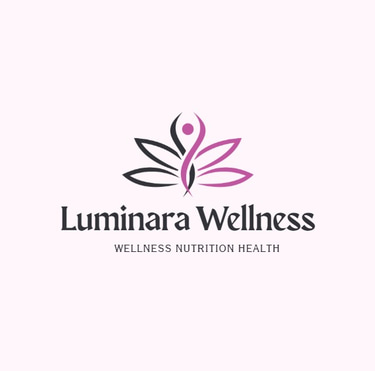
What Diet Follow in Hepatitis B? Best Foods, Meal Plan & Lifestyle Tips
Discover what diet follow in Hepatitis B. Learn the best foods, meal plans, and lifestyle tips to protect your liver and improve overall health.
Foods to Avoid in Hepatitis B
Alcohol and Sugary Drinks
Alcohol is not good for the liver. Fatty liver disease deteriorates by soft drinks and juices.
Processed and Fried Foods
They have saturated fats and trans fats, which get the liver working harder.
Excess Salt and Packaged Snacks
Water retention and liver engorgement result from excessive sodium.
Introduction: The Role of Diet in Hepatitis B
The liver is the core of metabolism, digestion, and detoxing. The liver gets irritated and vulnerable to damage once it gets infected with the Hepatitis B virus (HBV). Although drugs control the virus, a balanced diet could reduce the burden for the liver and improve the quality of life.
Which Diet Is Best for Hepatitis B?
Living with Hepatitis B can be intimidating, but one of your best tools when caring for your liver is your diet. The right food actually works to reduce inflammation, prevent additional damage, and maintain overall well-being. This article explains what a diet for Hepatitis B involves, including what you need to eat, what foods you need to avoid, and how to create a balanced meal plan.
Why Diet Matters for Hepatitis B Patients
Impact of Nutrition on Liver Health
Minimizing liver stress by means of good nutrition:
Supporting detoxification processes
Repairing damaged liver cells
Boosting immunity against infections
Preventing Liver Disease by Diet
Poor nutrition accelerates liver scarring (cirrhosis) and raises the risk of liver cancer. Avoiding harmful foods and highlighting nutrient-rich meals might slow the progression of the disease.
Foods to Eat in Hepatitis B
High-Protein Foods for Repair
Protein for cell repair and cell regeneration. Reliable sources:
✔Lean meats (chicken, turkey)
✔Fish (salmon, sardines)
✔Plant proteins (lentils, beans, tofu)
Fruits and Vegetables Rich in Antioxidants
Antioxidants fight liver inflammation. Good choices:
✔Leafy greens (spinach, kale)
✔Citrus fruits (oranges, lemons)
✔Berries (strawberries)
Whole grains provide consistent energy.
Instead of refined carbs, try:
✔Brown rice
✔Oats
✔Whole wheat bread
Healthy Fats for Liver Function
Not all fats are bad. Include:
✔Olive oil
✔Avocados
✔Nuts and seeds
Hydration and Fluids
Best Drinks for Liver Health
Water
Herbal teas (chamomile)
Fresh vegetable juices
What to Avoid in Drinks
Energy drinks
Sugary sodas
Excess caffeine
Developing a Sustainable Hepatitis B Diet
One of the best support factors for a person living with Hepatitis B is a balanced diet. Whole, nutrient-rich foods and avoidance of harmful ones help minimize liver stress, enhance immunity, and provide for long-term well-being. Pair these diets with drugs, exercise, and relaxation for a more comprehensive, a stronger life.
For further guidance, you can explore the World Health Organization – Hepatitis B for updated recommendations.
Sample Diet Plan for Hepatitis B
Breakfast Options
Oatmeal with berries and nuts
Avocado whole-grain toast
Dinner Options
Lean poultry with quinoa and green leaves
Tofu and vegetable stir-fry recipe
Lunch Ideas
Grilled salmon with brown rice and steamed veggies
Lentil soup with whole-grain bread
Healthy Snacks
Fresh fruits
Unsalted nuts
Yogurt with flax seeds
Special Considerations for Chronic Hepatitis B
Managing Cirrhosis Through Diet
If the Hepatitis B progresses to cirrhosis, diet becomes paramount. Patients need to:
Limit sodium to reduce swelling and fluid retention
Choose smaller, frequent meals to ease digestion
Don't eat raw shellfish since it can contain harmful bacteria
Nutrient Deficiencies Worry About
Chronic hepatitis B may cause deficiencies of:
Vitamin D – required for strong bones
Iron - from bleeding or from a lack of absorption
Protein – necessary for tissue repair
Regular check-ups with a physician allow deficiencies to be corrected early.
Lifestyle Tips Alongside Diet
Exercise for Liver Health
Physical exercise makes the metabolism of the individual regular, prevents fatty liver, and keeps the weight within normal limits. Aim for at least 30 minutes of moderate exercise thrice a week.
Stress Management
Stress could slow down immunity and inflammation of the liver. Techniques like meditation, yoga, and deep breathing could facilitate patients' coping.
Supplements and Vitamins
Vitamin D and Calcium
Individuals with liver disease usually experience weaker bones. Bone health supplements might contain vitamin D and calcium.
Omega-3 Fatty Acids
Derived from fish oil or flaxseed, omega-3s reduce inflammation and maintain heart health.
Probiotics and Gut Health
Healthy gut microbiome lessens liver stress. Probiotics (found in yogurt or as a supplement) help digest food and improve immunity.
Frequently Asked Questions (FAQs)
1. Does diet cure Hepatitis B completely?
Yes. The diet does not cure Hepatitis B but maintains the liver and does not further harm. Medication is also required.
2. Is a vegetarian diet safe for patients with Hepatitis B?
Yes. A well-planned vegetarian diet of lentils, beans, nuts, and whole grains contains required nutrients and protein.
3. Should Hepatitis B patients avoid protein?
No. Protein for convalescence. Protein intake may be strictly regulated only if advanced cirrhosis is present.
4. Is green tea beneficial for the liver?
The green tea does contain antioxidants which support the liver, but one must drink it in moderation.
5. Which fruit is good for Hepatitis B?
Vitamin C-rich foods such as oranges, berries, and papayas are a good choice.
6. Can Hepatitis B patients eat eggs?
Yes. Eggs do contain a lot of protein but need to be eaten lightly, poached or boiled ideally not deep-fried.
